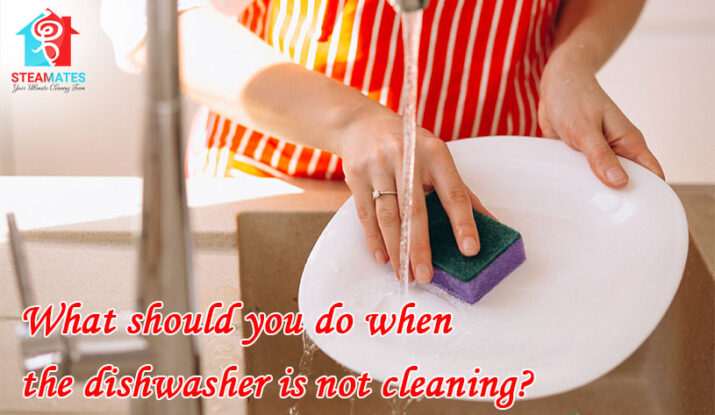There are several causes for an ineffective dishwasher, including a dirty filter, clogged spray arm, or broken soap dispenser. If you’ve noticed that your dishwasher is not cleaning, it’s time to investigate using the guidelines below. For a fast, reliable solution, skip the investigation and get help now. Find your local house cleaning service or schedule an appointment online.
Troubleshooting Tips for a Dishwasher that’s Not Cleaning As intended
When your dishwasher is not getting dishes clean, cleaning the machine may fix the issue. After that, regular maintenance should keep your unit running. However, dirty components are not always the root of the problem. Here are some likely reasons that your dishwasher is not cleaning:
- Dirty Filter: Older dishwashers (those made before 2010) most likely have a self-cleaning filter that operates by grinding down food particles until they are small enough to wash away. Newer, quieter models typically have a removable filter that needs to be taken out and cleaned periodically. The filter is below the racks, usually topped with a twist-off cap. To clean the filter, remove it from the machine (using the owner’s manual instructions) and rinse it thoroughly under hot water. If there’s stuck-on gunk, soak it in hot, soapy water for several minutes and gently clean it with a soft brush before rinsing.
- Clogged Spray Arm: Spray arms spin around below and/or above the dishwasher racks, shooting water to wash the dishes. The jets (tiny holes) in the spray arms can get clogged, which reduces water pressure. Cleaning the spray arms may improve function.
- Broken Soap Dispenser: If your soap dispenser isn’t working properly, the detergent may not be reaching your dishes, or it may not be released at the right time during the wash cycle. A common issue is a jammed spring in the dispenser door. Try using a small brush to clean the soap dispenser and springs. A mixture of hot water and vinegar will help dissolve grease and debris.
- Low Water Temperature: Most dishwasher cycles require a water temperature of at least 120 degrees Fahrenheit to work properly. Some models have a heart-boosting mechanism built-in, but if yours doesn’t, make sure that your water heater is set to 120 degrees.
- Detergent and Related Issues: Low-quality or improper detergent can lead to spotty dishes. Using too much detergent can also cause problems. Be sure to use the right type of detergent and the appropriate amount. A final rinse agent should improve results too. If you have hard water, consider installing a water softener to minimize mineral deposit damage. Lastly, be sure to load the dishwasher correctly.
Hire a Professional
Still, having trouble? Don’t have the time to play dishwasher detective? Ask our professional agent to pinpoint the issue and fix it fast. Connect with our local team or schedule an appointment online for a prompt, professional cleaning service.


